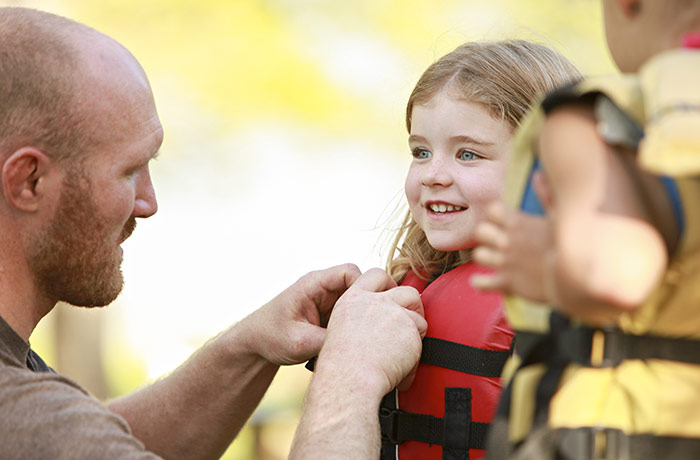
Our lakes are pretty great. After all, we’re not called The Great Lakes State for nothing. Yet despite their undeniable beauty, the Great Lakes can pose great danger. As of mid-July, there have been 37 drownings reported in the Great Lakes (18 in Lake Michigan alone). To put things on a national scale, in the U.S., someone dies from drowning every 10 minutes.
While the statistics are alarming, swimming—whether in a lake or backyard pool—is fantastic exercise, not to mention a ton of fun. Best of all, you don’t have to shun the water to stay safe and reap all its advantages.
To protect yourself and those you love, swim into these 10 tips:
- Preach water safety. Talk to your kids about pool and water safety. Enroll them (and yourself) in swim lessons taught by a qualified instructor. By learning how to swim, as well as understanding the rules of the water, kids are less likely to place themselves in dangerous situations, and should something happen, they’ll be better equipped to handle it.
- Don’t swim solo. It’s ideal if a trained lifeguard is on duty; however, be sure to never swim alone. Teach your kids to swim with a sibling or friend so they can look out for one another if a parent is not physically in the pool or body of water with them.
- Keep a watchful eye. When your children are in the water, be on high alert. Pools, lakes, the ocean or even a bathtub … stay within arm’s reach of young children at all times. Moms and dads of older kids should remain close and keep their eyes on their teens (even if strong swimmers), too.
- Wear a life vest. Inexperienced swimmers or young children should wear a Coast Guard-certified life jacket in and around water. Inflatable swimming aids like “floaties” or pool noodles aren’t substitutes for life jackets.
- Enter water feet first; injuries often happen when jumping or diving headfirst into shallow water. Allow kids to only dive in areas that you know are deep enough and free of underwater objects.
- Be mindful of alcohol, which impairs judgment, coordination and balance. Talk to your teens about how alcohol can lower body temperature and affect their ability to swim.
- Don’t jump in to save a struggling swimmer. Practice the "reach or throw, don’t go” technique.
- Avoid entrapment. Hair, bathing suits and even arms and legs can trap a swimmer beneath water. Do not use a pool or spa if there are broken or missing drain covers.
- Always stay within designated swim areas in pools, lakes or the ocean. Educate yourself and your kids about rip currents.
- Learn CPR—it can mean the difference between life and death.
By following this advice, you can experience greater peace of mind this summer and beyond—no matter where you and yours choose to splash around.